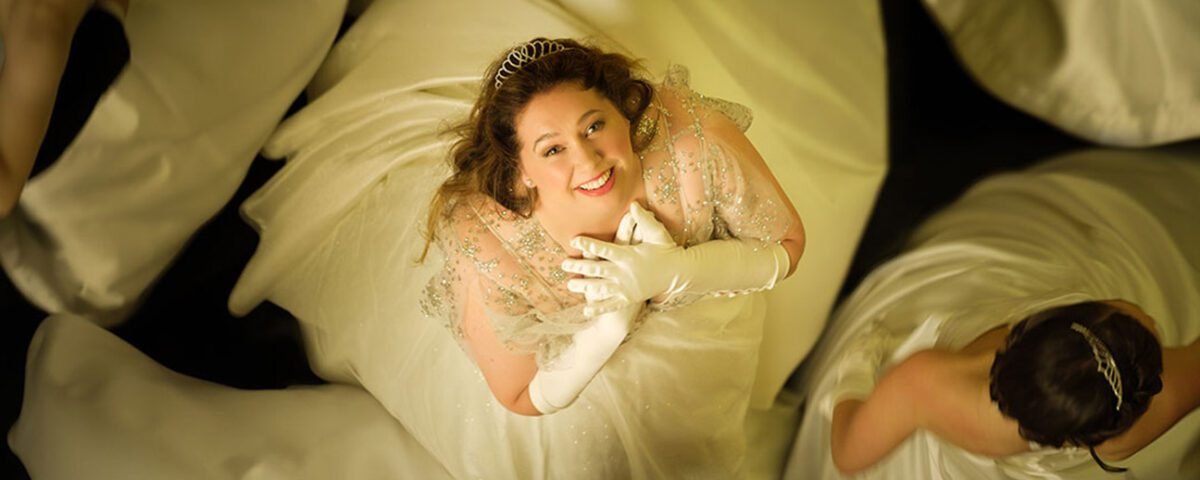


‘Never Let Go’ Review: Halle Berry Stokes the Ambiguity but Can’t Stop Alexandre Aja’s Horror Fairy Tale From Stalling
September 24, 2024


‘Traumnovelle’ Review: German Adaptation of Novella That Inspired ‘Eyes Wide Shut’ Leans Hard into the Lurid
September 25, 2024The ‘Pitch Perfect’ actress adapts an Australian stage play about a city girl who moves to the outback and helps her cousin become a debutante.
The Deb
Overstuffed with both good and bad.
When Maeve (Charlotte MacInnes) gets suspended from school after a political demonstration backfires, her mother (Susan Prior), who also happens to be the institution’s principal, sends the Sydney teenager to live with her cousin Taylah (Natalie Abbott) in the Australian outback.
Premiering at the Toronto International Film Festival, The Deb chronicles Maeve’s fish-out-of-water adventures in Dunburn. Upon arrival, the cosmopolitan teen loudly rejects the town’s regressive traditions. In particular, Maeve bemoans the annual debutante ball, which Taylah dreams of attending. She can’t understand why her cousin would submit herself to such retrograde pomp and circumstance. Soon, of course, Maeve realizes that she can’t so easily write this small town or its people off.
Whereas Muriel wanted to get married, Taylah wants to find a date to the debutante ball, a tradition that makes her feel closer to her deceased mother. Her transformation and friendship with Maeve drive most of the film’s action and offer a heartwarming, if predictable, relationship to root for. It helps that MacInnes (who played Maeve in the stage production) and Abbott fully embrace their characters and the exaggerations required of the movie musical. Their performances, as well as a handful of others including Shane Jacobson as Taylah’s father Rick and Tara Morice as a local tailor, soften the film’s more glaring contrivances.
Outside of the acting, which leans into the ridiculous and amplifies the campy nature of the film, The Deb struggles in its translation to the screen. The music is contemporary pastiche — riffing on different genres and arranged in ways that recall the Pitch Perfect covers — and although a handful are memorable, thoughts of many fade with the credits. Wilson’s direction is similarly uneven, especially toward the middle of the film, which packs in convenient plot points to distract from narrative thinness. The result is off-kilter pacing that threatens to undo the film’s more successful parts.
Like this year’s Mean Girls, The Deb does successfully play with the tools of the social media age, adjusting the aspect ratio to mimic iPhones and incorporating the use of platforms like TikTok or Instagram into its storytelling. The film opens with a bullish pop number (one of the movie’s strongest) introducing Maeve’s world at an elite private school in Sydney. The new teenage experience involves documenting every aspect of their lives and engaging in Plastics-like mocking and cruelty.
The country air doesn’t suit our chronically online city girl, so from the moment Maeve arrives in Dunburn, she begins plotting her departure. She plans to make her great return to Sydney with a podcast that chronicles her small-town life and begins recording all of her interactions. She ropes in Taylah, making her journey to the deb ball the main narrative, and interviews the resident mean girls, Danielle (Brianna Bishop), Chantelle (Karis Oka), Annabelle, (Stevie Jean) and Annabelle’s mother Janette (played by Wilson), a beautician who makes Regina George seem angelic. As Maeve zips around town investigating, she’s also pursued by a bad boy named Mitch (Hal Cumpston), whom we never learn all that much about.
A significant portion of The Deb’s plot revolves around Maeve keeping the true intentions of her podcast a secret while forming a genuine friendship with Taylah, but there are other narratives stuffed into this film. One involves the fate of Dunburn, which is in desperate need of government funds, and the other concerns a will-they-or-won’t-they romance between Rick and Shell (Morice), the town’s tailor. These threads are introduced with confident set pieces and catchy tunes that accompany decent choreography, but the balance is lost once the plot lines require more involvement. Despite its 2-hour runtime, parts of The Deb can feel frustratingly shallow.
That could be forgiven if the rest of the movie meaningfully cohered, but it doesn’t. The Deb, much like Maeve’s experience in Dunburn, is ultimately a mixed bag.





